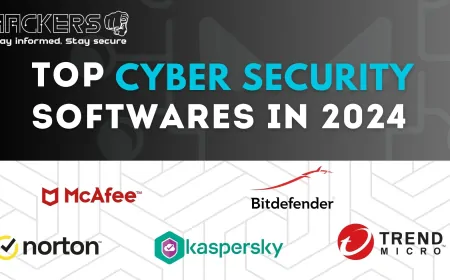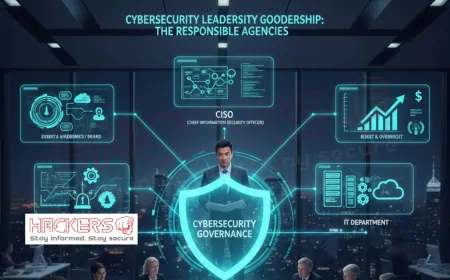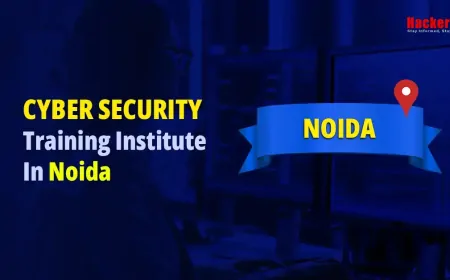What Soft Skills Are Students Taught Along With Cyber Security in Pune Colleges?
In today's fast-paced digital world, knowing how to code or spot a virus is not enough for a career in cyber security. Picture this: you are in a high-stakes meeting, explaining a complex data breach to non-tech executives who need simple, clear advice. Or imagine working in a team where quick decisions save a company from disaster. This is where soft skills come in. Soft skills are those personal traits like communication or teamwork that help you interact with people and handle situations beyond technical know-how. Pune, India's education and IT powerhouse, is leading the charge in blending these skills into cyber security programs. With colleges like those under Savitribai Phule Pune University (SPPU) and private institutions like Symbiosis, students learn not just firewalls and encryption (which scrambles data for safety), but also how to lead, adapt, and think critically. Influenced by the National Education Policy 2020, these programs emphasize holistic growth. If you are a student wondering why talking well matters in hacking classes, or a parent curious about job readiness, this blog breaks it down. We will explore key soft skills, how they are taught, and why they matter in Pune's vibrant tech scene. Let us get started on this journey to see how Pune colleges are shaping well-rounded cyber experts.

Table of Contents
- Why Soft Skills Matter in Cyber Security
- Communication Skills: Explaining Tech to Everyone
- Teamwork and Collaboration: Working in Groups
- Problem-Solving and Critical Thinking
- Leadership and Ethical Decision-Making
- Adaptability and Lifelong Learning
- How Pune Colleges Teach These Skills
- Benefits for Students and Careers
- Conclusion
- Frequently Asked Questions
Why Soft Skills Matter in Cyber Security
Cyber security is not a solo job done in a dark room. It involves teams, clients, and constant changes. Hard skills like programming get you in the door, but soft skills keep you there and help you climb. In fact, reports from LinkedIn show that 92% of employers value soft skills as much as technical ones.
In cyber security, threats evolve daily. Ransomware attacks or phishing scams require not just fixing code, but communicating risks to bosses. Poor communication can lead to ignored warnings and big losses. Teamwork is key in incident response teams, where experts from IT, legal, and management collaborate.
- Real-world example: During a breach, a cyber pro must explain issues without jargon to avoid panic.
- Job stats: Cyber roles now demand "people skills" in 70% of postings.
- NEP influence: Policy pushes multidisciplinary learning, mixing tech with soft skills.
Pune's IT hubs like Hinjewadi make this relevant. Companies such as Infosys hire grads who can present findings or lead training sessions. Without soft skills, even the smartest coder struggles.
Expanding on this, consider the human element in security. Hackers exploit people as much as systems through social engineering, tricking folks into revealing passwords. Understanding empathy and ethics helps counter this. Colleges recognize that technical grads fail if they cannot adapt to team dynamics or ethical dilemmas, like deciding on data privacy in a project.
In Pune, with over 500 IT firms, soft skills bridge the gap between classroom and office. Students learn that cyber security protects people, not just machines, requiring interpersonal abilities.
Communication Skills: Explaining Tech to Everyone
Communication tops the list. In cyber security, you deal with reports, presentations, and emails. Pune colleges teach this through workshops where students explain concepts like VPNs (virtual private networks that hide your online activity) in simple terms.
Activities include mock press conferences on breaches or writing policy documents. This builds clarity and confidence.
- Verbal: Debates on cyber laws.
- Written: Blogging about threats.
- Non-verbal: Body language in interviews.
At Symbiosis, students join toastmasters clubs. This skill helps in audits, where you convince teams to follow security rules. Poor communicators cause misunderstandings, like ignoring a vulnerability report.
More details: In a typical class, role-plays simulate client meetings. Feedback from peers refines delivery. By graduation, students craft emails that get action, vital in fast alerts.
Industry tie-ins: Guest lectures from pros stress storytelling with data visuals. This makes complex ideas accessible, reducing risks from miscommunication.
Teamwork and Collaboration: Working in Groups
Cyber incidents need teams. Pune programs use group projects, like building a secure network together. This teaches sharing ideas, resolving conflicts, and dividing tasks.
Tools like Slack or Microsoft Teams mimic office setups. Colleges partner with firms for hackathons, fostering collaboration.
- Group simulations: Red team (attackers) vs blue team (defenders).
- Conflict resolution: Sessions on handling disagreements.
- Diversity: Mixed groups build inclusivity.
In MIT ACSC, students collaborate on forensics cases, learning trust and reliability. This preps for global teams in Pune's multinational companies.
Deeper insight: Teamwork reduces errors; one study shows collaborative teams spot 30% more threats. Classes include peer reviews, teaching constructive feedback.
Post-NEP, mandatory internships emphasize this, with reports on team contributions graded.
Problem-Solving and Critical Thinking
Cyber puzzles demand quick, smart fixes. Colleges teach this via case studies of real attacks, like the WannaCry virus.
Students analyze root causes, brainstorm solutions, and evaluate risks. Brainstorming sessions encourage out-of-box thinking.
- Puzzles: Escape rooms with cyber themes.
- Analysis: Dissecting malware behavior.
- Decision trees: Weighing options in scenarios.
At DY Patil, critical thinking modules question assumptions, like why a firewall failed. This builds resilience against evolving threats.
Expanded: Problem-solving involves logic and creativity. Workshops use gamification, awarding points for innovative defenses. This skill helps in ethical hacking, finding weaknesses before bad guys do.
In careers, it means minimizing downtime during attacks, saving millions.
Leadership and Ethical Decision-Making
Even entry-level roles need leadership. Pune colleges offer clubs where students lead cyber awareness campaigns.
Ethics classes discuss dilemmas, like reporting a friend's mistake. This fosters integrity.
- Leading projects: Managing timelines.
- Ethics debates: Privacy vs security.
- Mentoring: Seniors guide juniors.
In Nowrosjee Wadia College, leadership electives align with NEP's value education. Grads lead teams in compliance, ensuring laws like GDPR are followed.
More on ethics: With data breaches costing billions, ethical leaders prevent scandals. Role-models from industry share stories, inspiring responsibility.
Adaptability and Lifelong Learning
Tech changes fast; AI threats emerge yearly. Colleges teach adaptability through updated curricula and online courses.
- Flex modules: Switch topics mid-semester.
- Certifications: Encourage CompTIA renewals.
- Webinars: On new trends like quantum computing.
ASM CSIT promotes MOOCs on platforms like Coursera. This prepares for job shifts, like from analyst to consultant.
Details: Adaptability means embracing failure as learning. Reflection journals track growth, building resilience.
How Pune Colleges Teach These Skills
Pune blends soft skills seamlessly. Under NEP, 20% credits are for skills like these.
Methods include seminars, internships, and extracurriculars. Here is a table of skills across colleges:
| College | Key Soft Skills Taught | Teaching Methods | Examples |
|---|---|---|---|
| Nowrosjee Wadia College | Communication, Ethics | Workshops, Debates | Mock audits, Policy writing |
| MIT ACSC | Teamwork, Problem-Solving | Group Projects, Hackathons | Team defenses, Case studies |
| DY Patil University | Leadership, Adaptability | Clubs, Seminars | Campaign leads, Trend updates |
| Symbiosis | Critical Thinking, Communication | Presentations, Role-Plays | Client sims, Reports |
| ASM CSIT | All Round via Internships | Industry Ties, Reflections | Mentor feedback, Journals |
Integration happens in core classes too. A networking lab might end with a team presentation.
Faculty training ensures quality. NEP funds guest experts, making learning practical.
Benefits for Students and Careers
These skills boost employability. Grads with them get 20% higher salaries, per surveys. In Pune, 85% placement rates reflect this.
- Confidence: Handle interviews better.
- Networks: Build professional ties.
- Balance: Reduce burnout with adaptability.
Long-term, they enable promotions to managerial roles. Alumni stories show soft skills turned techies into CISOs (chief information security officers).
In a broader sense, they contribute to society: better communicators raise awareness, preventing attacks.
Conclusion
In Pune's cyber security programs, soft skills like communication, teamwork, and leadership are not add-ons; they are essentials woven into the fabric of education. From group hacks to ethical debates, colleges prepare students not just to fight digital threats, but to thrive in human-centered roles. This holistic approach, boosted by NEP 2020, ensures grads are ready for Pune's IT world and beyond. Whether solving crises or leading teams, these skills make the difference. If you are starting out, embrace them early: they will secure your career as much as any code.
Frequently Asked Questions
What are soft skills in cyber security?
Soft skills are non-technical abilities like talking clearly or working in teams that help apply cyber knowledge in real jobs.
Why include soft skills in tech courses?
Cyber jobs involve people, so these skills ensure you communicate risks and collaborate effectively.
Which colleges in Pune focus on them?
All major ones like Symbiosis and MIT ACSC integrate them via NEP guidelines.
How is communication taught?
Through presentations, writing reports, and role-plays explaining tech simply.
What about teamwork activities?
Group projects and hackathons simulate real team responses to threats.
Is problem-solving part of the curriculum?
Yes, via case studies and puzzles that teach analyzing and fixing issues.
How do students learn leadership?
By leading clubs, projects, and discussions on ethics.
What role does adaptability play?
It helps handle new threats, taught through flexible learning and updates.
Are internships involved?
Yes, they apply soft skills in real workplaces with feedback.
Benefits for job placements?
Higher chances and salaries, as employers seek well-rounded candidates.
How does NEP 2020 influence this?
It mandates skill-based education, including soft skills in tech programs.
Can beginners develop these skills?
Absolutely, starting with workshops and practice in class.
What if I am shy?
Colleges offer supportive environments like small groups to build confidence.
Examples of ethical training?
Debates on privacy laws and decision-making in dilemmas.
How to improve critical thinking?
Through analyzing attacks and brainstorming defenses in sessions.
Do clubs help?
Yes, cyber clubs organize events for practical skill application.
Long-term career impact?
Leads to leadership roles and better problem handling in jobs.
Assessments for soft skills?
Via peer reviews, presentations, and project contributions.
Industry demand in Pune?
High, with IT firms needing communicators for client interactions.
Tips for students?
Participate actively, seek feedback, and join extracurriculars.
Future trends?
More emphasis on emotional intelligence with AI in security.
What's Your Reaction?










































































